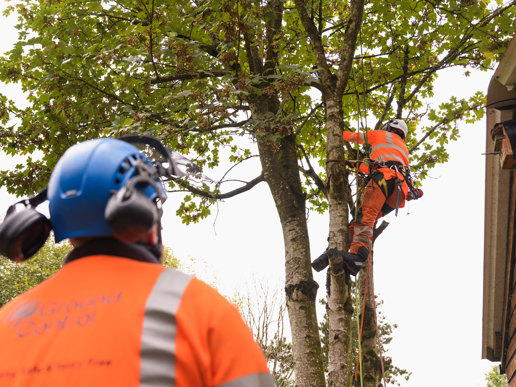The restoration of Wetlands

This year, World Wetlands Day explores the theme of restoration. Here at Ground Control, we examine what wetlands are, why they are important to humans, and a little bit of hope for their restoration.
What is a wetland, and "What are you doing in my swamp?"
It is important to understand that wetlands appear on every continent, even Antarctica. And they are not just 'drab, muddy ponds'.
- A wetland is any ecosystem that is covered in liquid water, either permanently, or periodically, and the result is soil or sand with high moisture and low oxygen.
The largest wetlands in the world, are the Amazon Basin, The Ganges Delta, the West Siberian Plain, and The Pantanal in South America.
But here in the UK, wetlands present themselves as marshes, floodplains, estuaries, and peat bogs and fens, with each one providing food, water, and shelter for native wildlife and migrating birds.
They are amongst the UK's most biologically diverse environments
Wetlands have a wealth of biodiversity...
- Microscopic organisms such as ciliates, and mini-beasts like water snails, live in the mud.
- Amphibians, fish, arthropods, and even reptiles swim through the water.
- Birds, insects, and mammals feed, drink, and breed at the surface
And throughout the whole system are plants as small as algae, and as large as trees.

Between you, me, the tree, the rock. Wetlands benefit societies
They are one of nature’s best methods of water purification and removing silt, animal waste, and chemicals. In fact, people replicate this and construct their own artificial wetlands to treat human waste, industrial and domestic grey water, and to divert runoff from drains and roads.
Coastal wetlands stabilise shorelines and reduce the damage caused by storms. Internationally, shorelines with mangroves can lessen the damage of hurricanes and closer to home, they act as flood control.
They are also great for tourism and mental health. Wetland walks – along with other “green walking” activities – have shown promise in reducing the symptoms of anxiety. Allowing wetlands to thrive with people is a fantastic showcase of Human Nature: At Its Best.
Wetlands protect us against climate change.
As plants grow they convert carbon dioxide into complicated carbon compounds. When they die, other organisms digest them and return the carbon dioxide to the air.
However, in wetlands they are submerged in a low oxygen environment and much of this organic carbon remains trapped. Over geological time this turns into peat, fossil fuels, or is stored in sedimentary rocks rather than being released into our atmosphere.
"The Dead Marshes" are an at-risk habitat
Wetlands are one of the most delicate ecosystems, and due to human interference through issues such as draining or damming, installing flood barriers, or allowing untreated effluent to pour directly into them, they are shrinking.
90% of the world’s wetlands have shrunk or been unrecognisably altered in the last 3 centuries. 35% disappeared completely in the last 50 years. We are losing wetlands three times faster than forests.
Without action, this trend will continue.
There is hope...
Awareness days such as World Wetlands Day showcase the importance of wetlands, rewilding, and projects such as the Wildfell Centre for Environmental Recovery, where we recently discovered our first otter on the banks of the River Pant.

Why is this significant? Otters are a bioindicator because their environmental needs are so complex. They require clean water, abundant food, and secluded locations. When the chemical contaminants in the water get absorbed by algae and insects, who are consumed by small amphibians and in turn eaten by larger fish, otters end up eating these containments in an incredibly concentrated dose.
Seeing otters in a habitat is a great indicator that the waters are clean, fresh, and full of life and a positive suggestion of rewilding and restoration in action.
Read more: Last summer, Jason Knights, Managing Director, explored how "the UK's wetlands is the key to avoid future droughts" in an 'Opinion Piece' for iNews.

Arborists and tree care teams needed in Ireland






